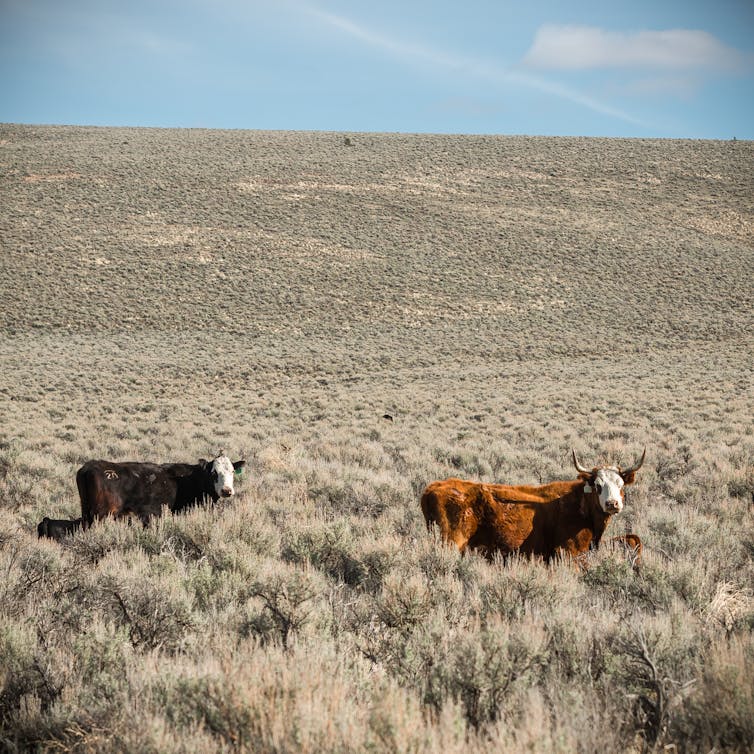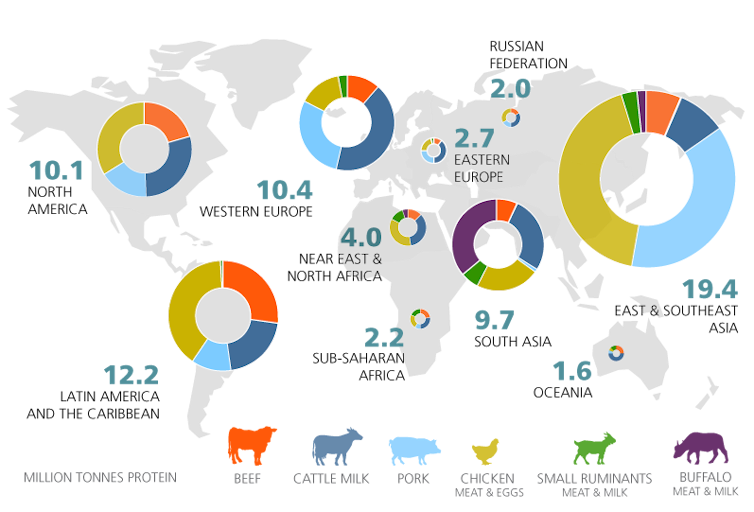Yes, eating meat affects the environment, but cows are not killing the climate
- From
-
Published on
30.10.18
- Impact Area


Frank M. Mitloehner, University of California, Davis
As the scale and impacts of climate change become increasingly alarming, meat is a popular target for action. Advocates urge the public to eat less meat to save the environment. Some activists have called for taxing meat to reduce consumption of it.
A key claim underlying these arguments holds that globally, meat production generates more greenhouse gases than the entire transportation sector. However, this claim is demonstrably wrong, as I will show. And its persistence has led to false assumptions about the linkage between meat and climate change.
My research focuses on ways in which animal agriculture affects air quality and climate change. In my view, there are many reasons for either choosing animal protein or opting for a vegetarian selection. However, foregoing meat and meat products is not the environmental panacea many would have us believe. And if taken to an extreme, it also could have harmful nutritional consequences.

Related news
-

Driving Locally Led Adaptation and Equity for Resilient Food Systems
Eisen Bernard Bernardo03.12.25-
Climate adaptation & mitigation
The International Rice Research Institute (IRRI) provided crucial, science-driven perspectives at th…
Read more -
-

Co-designing climate resilience: advancing drought risk financing in East Africa
Sustainable Animal and Aquatic Foods Science Program03.12.25-
Climate adaptation & mitigation
Climate variability continues to affect pastoral communities across East Africa, increasing the need…
Read more -
-

Strengthening Climate Security and Displacement Responses in Africa: Insights from a Joint CGIAR–UNHCR Training
Ibukun Taiwo03.12.25-
Climate adaptation & mitigation
Communities across Africa are facing the combined pressures of climate change, conflict and forced d…
Read more -
